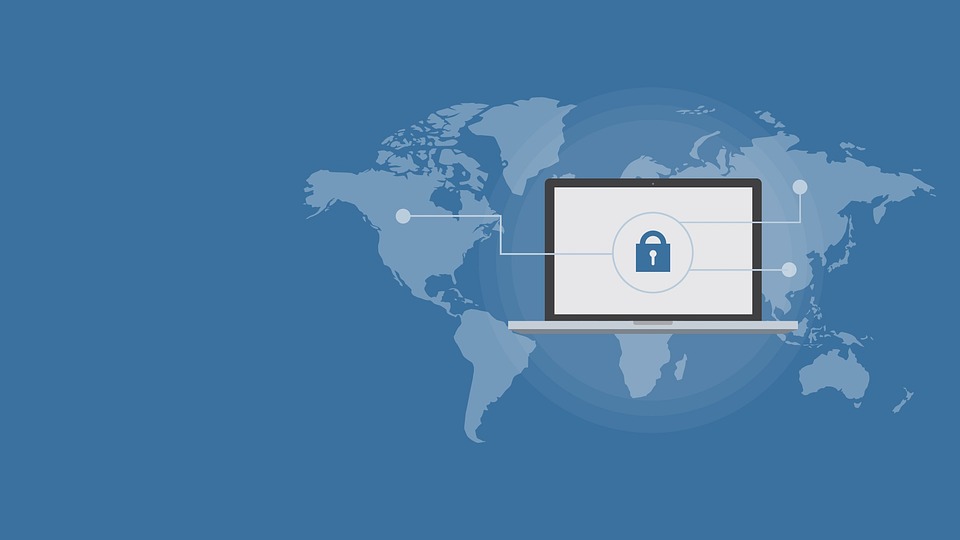As the world becomes more digital, the importance of cyber security is increasing rapidly. Every year, millions fall victim to cybercrime, whether a data breach or an identity theft. This affects not only individuals but also businesses and even whole countries. In this article, we explore why cyber security is more important than ever before.
Overview of Cyber Security
Cyber security involves protecting systems, networks, and devices from digital attacks. The goal is to prevent unauthorized access, theft, or data damage. Cyber security can be achieved through various measures such as encryption, firewalls, anti-virus software, and password protection.
Why Cyber Security is So Important
With the rise of technology, cybercriminals have found new ways to hack and exploit vulnerable systems. Cyber attacks can cause significant financial loss, damage to reputation, and legal liability. Some of the reasons why cyber security is so important are:
- Protection of sensitive data: Cyber security is essential in protecting personal and confidential information. This includes financial data, health records, and intellectual property. The loss or theft of this information can lead to identity theft, financial fraud, or corporate espionage.
- Prevention of cyber attacks: Preventing cyber attacks is critical in stopping malicious hackers from exploiting vulnerable systems. Cyber attacks can cause damage to software and hardware, leading to costly repairs and data loss. In some cases, the damage can also be irreversible, leading to the complete shutdown of a company.
- Compliance with regulations: Many industries have regulations that require companies to have a certain level of cyber security in place. Failure to comply with these regulations can result in fines or legal liability. This is particularly relevant in industries that deal with sensitive information, such as healthcare and finance.
- Protection from reputation damage: Cyber attacks can also cause significant damage to a company’s reputation. If customers lose trust in a company’s ability to protect their data, it can lead to a loss of business and long-term damage to the brand.
Types of Cyber Attacks
Cyber attacks can come in many forms, including:
- Malware: Malware is software designed to cause harm to a computer system. It can be used to steal personal information or damage computer software.
- Phishing: Phishing involves tricking individuals into providing sensitive information. This can be done through emails, phone calls, or text messages.
- Denial of Service (DoS): Denial of Service attacks aim to disrupt the normal functioning of a system or network. This can be done by overwhelming the system with traffic or sending malicious packets.
- Ransomware: Ransomware is malware that locks down a system or network until a ransom is paid.
Cyber Security Risks for Businesses
Businesses are particularly vulnerable to cyber attacks due to the large data they handle. Some of the risks of cyber attacks for businesses are:
- Financial loss: Cyber attacks can lead to financial loss through stolen money or lost revenue due to downtime.
- Legal liability: Companies can be liable for failing to protect customer data or comply with regulations.
- Damage to reputation: A cyber attack can damage a company’s reputation, losing trust and business.
Cyber Security Measures
There are many measures businesses can take to protect against cyber attacks. These include:
- Employee training: Employees should be trained on proper cyber security practices, including password management and identifying phishing emails.
- Regular software updates: Software updates include security patches that fix vulnerabilities that hackers could exploit.
- Use of encryption: Encryption involves encoding data to make it unreadable without a decryption key. This can be used to protect sensitive data.
- Use of firewalls: Firewalls are network security systems that monitor and control incoming and outgoing traffic. They can be used to block unauthorized access to a network.
Conclusion
In conclusion, cyber security is more important than ever before. With the rise of technology, the threat of cyber attacks is increasing alarmingly. Cyber attacks can have significant financial, legal, and reputational consequences, so individuals and businesses must take cybersecurity seriously. By implementing robust cyber security measures, we can protect against these threats and create a safer digital world.
FAQs
What are the most common cyber security threats?
The most common cyber security threats include malware, phishing, DoS attacks, and ransomware.
How can individuals protect themselves from cyber-attacks?
Individuals can protect themselves from cyber attacks by using strong passwords, being cautious of suspicious emails and messages, and using anti-virus software.
How can businesses protect themselves from cyber-attacks?
Businesses can protect themselves from cyber attacks by implementing employee training programs, encryption and firewalls, and regularly updating software.
What are the consequences of a cyber attack on a business?
The consequences of a cyber attack on a business can include financial loss, legal liability, and damage to reputation.
What should businesses do if they experience a cyber attack?
If a business experiences a cyber attack, it should immediately contact a cyber security professional to help mitigate the damage and prevent future attacks.



Thanks for the article, it was very useful and informative for me, we should know how to protect ourselves preventively, and not look for information later, why this happened
We always need to stay careful and secure.
The safety of our data should be our concern, thank God most of the social media are encrypted
We all should be careful of fake messages and secure our data very well to avoid financial loss.
We always need to stay careful and secure.
This is a good piece of information especially in this 21st century where people are more innovative.
Thanks for letting me know more about the internet and it measures, I get little experience here
Thanks for letting me know about cyber security and it measures, I get little experience here
being cautious of suspicious emails and messages, and using anti-virus software.
thanks for the information because it is now very useful to me right now thanks …
As the world becomes more digital, the importance of cyber security is increasing rapidly. Every year, millions fall victim to cybercrime,
It is more important in this days because of crime that always happen in computer system , nowadays we are in digital words , so Cyber security need to be in place in order to dectect the real and fake documents
This cyber security is very important and useful just to avoid had I know whic always come at last
I’ve said it and I’ll say it again
Individual need to be literate so as not to be a victim!
Always careful when providing your information in any platform!
And always read on Cyber security to observe new development!
Thanks 🥰!
The need for cyber security can not be overemphasized. Thanks a lot for this information
This article serves as a reminder to all based on what is happening now
Both individuals and businesses own needs to be at alert on cyber security
Protection of sensitive data: Cyber security is essential in protecting personal and confidential information. This includes financial data, health records, and intellectual property.
Cyber security is a very important topic that everyone should be informed about because there’s no one who hasn’t felled a victim to cyber crimes. Especially as there’s an increase in technology so is there an increase in cyber crimes. Hence, there is need for cyber security enlightenment and this article has done justice to that.
This post look like a full lecture notes about cybersecurity. This why I don’t pick unknown number or answer message from an unknown person. That’s why ppl use various passwords and ended up forgetting which passwords is for which
being cautious of suspicious emails and messages, and using anti-virus software.
Cybersecurity is a key to a country’s growth or open atmosphere into bankruptcy. Cybersecurity threats are now tools used by world powers to break into firewalls of each other.
Thank you so much top news for keeping us updated and not failing 🙏🙏💝
Cyber security is so important this days there are scammers everywhere someone needs to protect what he/she has, good reviews
The goal is to prevent unauthorized access, theft, or data damage. Cyber security can be achieved through various measures such as encryption, firewalls
Wow, I learn alot from this article, this article educative me more on Cyber security..
Individual need to be literate so as not to be a victim!
Always careful when providing your information in any platform!
And always read on Cyber security to observe new development!
Thanks 🥰!
When you talk about cyber security a lot of us have no idea what to do about the security of our datas and against cyber attacks and thus have lot a lot of important data.SO thank you for this article.
The safety of the present and the future relies on the level of cyber security
It’s a very serious issue today and it’s calls for all the attention and enlightenment it requires
Very good information coming at a time when cyber security is a very serious and burning issue
Wow.. cyber security is very important. It very important to secure your connections than to be scammed by criminals
Thes lesson shed more light on how more important is cybersecurity in our day to day activities and in the world of today.
I learnt alot from this article like, the different ways of cyber crime and how it can affect the victim.
Yeah it’s very informative and educative. We need more information like this
Kudo to the writer of this particular article. I gain something new from it, and mind you this article is really helpful to students, especially students who are studying computer science
Yes security is very important to secure your from fraudsters and scammers.
Truly, cyber attacks can spoil a Person’s or company’s reputation. This is why cyber security is really needed. This is actually very educative ❤️
This is a very beneficial and useful article mostly especially in a time like this where digital technology virtually covers all aspects of human life….thanks for the this
This is educative and informative. Both individuals and businesses needs to be literate and careful about cyber criminals and their modes of operations to avoid loss of vita information.
being cautious of suspicious emails and messages, and using anti-virus software.
This strategy is scalable as traders can simultaneously exploit price discrepancies across multiple exchanges